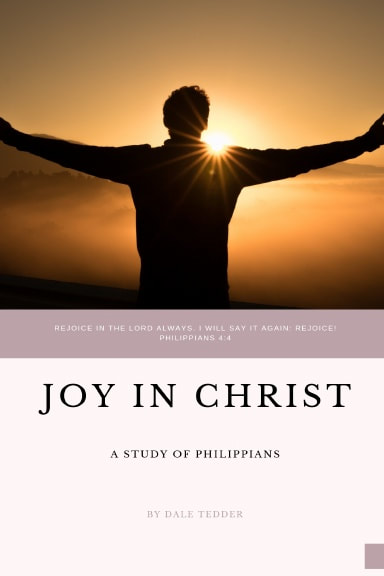|
Lesson 9
Godly Encouragement, Prayer, Thinking, and Practice Philippians 4:1-9 * Review and Report on last week’s Walking Points questions and next steps. Thoughts? How did you do? Share any victories and/or struggles you may have had following through with your plan. 1. Read Philippians 4:1-9 twice. Write down any key ideas or phrases that catch your attention. What are the key principles you believe we ought to draw from this text? Why did you choose those principles? 2. Because Christians are citizens of heaven and await our Savior, the Lord Jesus Christ, who will transform our lowly body to be like his glorious body (3:19-21), and because he will subject all things to himself (3:21), Paul tells the Philippians to stand firm in the Lord (4:1). What does it mean to “stand firm” in the Lord? 3. Paul turns his attention to a personal matter between two women in the Philippian church that was not a small and insignificant matter. While doctrinal error or sin was probably not at issue (otherwise, Paul would have corrected it), it still needed to be dealt with for the sake of unity in the church. What did Paul plead for Euodia and Syntyche to do? Since error and sin were probably not in view here, what might Paul’s plea have meant? What role had these two women played in the ministry of Paul? What did Paul tell the Philippians to do regarding these women? 4. As we have learned, the Apostle Paul was in prison as he wrote this letter. In verses 2-3 we saw there was personal dissension taking place in the church. Therefore, how was Paul still able to tell the Philippians to rejoice always? How did he describe this rejoicing (v. 4)? What do you think he meant by that qualifier? 5. In verse 5 Paul said, “Let your reasonableness be known to everyone” Other translations refer to it as “gentleness.” In either case, why was the public display Paul encouraged important? How do Paul’s words, “The Lord is at hand (v. 5) add a little extra motivation to behave in such a way? 6. Paul commanded the Philippians to not be anxious about anything (v. 6). (Read Matthew 6:25-34.) Based on these verses from Philippians and Matthew, what does it mean to “be anxious?” What is it about worry or anxiety that warrants these words from Jesus and Paul? 7. What are the components of prayer Paul lists, in verse 6? 8. Read verses 4-7 again. How can Paul’s words in these verses help you when you experience worry and anxiety? (Better yet, how can his words help you before you feel worry and anxiety?) 9. How would you describe the “peace of God which surpasses all understanding” to a friend? What does Paul mean by saying the peace of God “will guard your hearts and your minds in Christ Jesus?” Share a time when you experienced this kind of peace? Describe what it was like. 10. In verse 8, the Apostle Paul provides us with one his great lists. What do you think it means to “think about these things?” Beside each word below, write the definition of the word, why you think it is important for a Christian to “think about,” and what its opposite is. · Whatever is true – · Whatever is honorable (noble) – · Whatever is just (right) – · Whatever is pure – · Whatever is lovely – · Whatever is commendable (admirable) – · Any excellence – · Anything worthy of praise – 11. What did Paul expect the Philippians to do, based on what they had been taught by him and seen in his example? What would be the outcome, if they did? Walking Points 12. How can standing firm for the Lord (standing firm in your faith) be difficult in your daily life? Does our surrounding culture make it harder or easier for you to do so? Explain. How can the members of this class help you stand firm? In what ways would Paul’s words in Philippians 3:19-21 encourage the Christians in Philippi, as well as Christians today, to stand firm in the Lord? 13. Why is unity in the church so important (see John 17:20-21)? How can a local church maintain unity without ignoring doctrinal error and sin? 14. Do you struggle with worry and anxiety? If so, why? How do you usually deal with it when you experience it? Are there any truths and principles you learned from the Scripture in this lesson that can help you with worry? Name two or three ways you will put them into practice, starting this week. 15. Pick three of the virtues from Paul’s list (see Question 10) and describe how you will “think about” each one, and will put it into practice. Share your ideas with an accountability partner and begin this week. Give a report to your accountability partner each week.
0 Comments
|


 RSS Feed
RSS Feed
